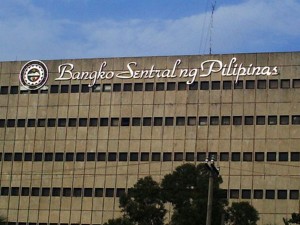BSP: Dear customer, beware of online identity thieves

Regulators have called on banks to be more cautious in managing their computer systems, ordering that lenders stop using unlicensed or pirated software in any part of their operations, lest they open themselves up to risks. INQUIRER FILE PHOTO
The Bangko Sentral ng Pilipinas (BSP) on Tuesday warned the public against phishing scams, wherein scammers target personal e-mails to steal confidential financial information.
In an advisory, the central bank said scammers can withdraw cash, make purchases, open new accounts, and encash checks using the identity of other people obtained from the Internet.
“Phishing is a form of identity theft whereby someone steals or uses personal or sensitive information of another person without his/her knowledge or permission, through hacking into one’s personal account, hijacking one’s data and taking over one’s online identity, to commit fraudulent acts/crimes, or conduct unauthorized business,” BSP said.
BSP said e-mail scams usually come with generic greetings such as “Dear Customer” or “To Our Valued Client,” prompting users to perform “urgent” tasks like updating or verifying one’s accounts, and threatening them that “failure to do so will result in account suspension.”
“The message is usually accompanied by a link that, when clicked, leads to a spoofed or fake website which asks you to input your personal and financial information such as User IDs, passwords and account and personal identification numbers,” the advisory added.
The central bank said online scammers use authentic-looking logos and other identifying marks of an established organization to victimize more people.
Aside from e-mails, BSP added that phishing may also be carried out in other platforms such as text messaging, fake online advertisements, chat rooms, fake browser toolbars and fake job search sites.
“To avoid being victimized by Phishing scams, do not reply to suspicious e-mails. Ignore and delete the message,” BSP said. “Do not click any link in a suspicious message. Do not give personal and financial information requested through e-mail.”
BSP urged the public to report phishing incidents and to call banks upon receipt of suspicious messages. “If you think you have given out information to a phisher, report the incident immediately to the company that was spoofed,” it added. TVJ
RELATED STORY
DoST launches Internet infra to protect netizens from cybercrime